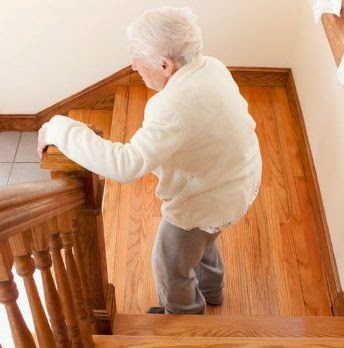 | |
| Googleimages.com |
Denial is a huge hurdle to face in dealing with the loss of hearing. Being hard of hearing or deaf still carries a huge stigma for much of this aging generation. And if they do admit it, they dig their heals in about any sort of assistive device such as hearing aids. They just want you to speak louder and turn up the TV!
When you can't hear yourself think for all the noise in the house, it's very frustrating and yet probably too late to make much difference.
Get Hearing Tested Early
If you can get them to an audiologist to test the hearing and even give in to buying hearing aids it may be too late for them to actually work very well. But the sales person won't tell you that. In fact they will keep selling them more expensive yet more sensitive models to try to improve what little "hearing" there is. For some people this will work, but for some it's just another frustration and a device that will be found in a drawer and not in the ears.
These sophisticated devices are very sensitive to moisture and any amount of wax in the ears. Tiny holes quickly become clogged and render the devices useless until they are cleaned. And to do so requires tiny, nimble fingers and a few tiny tools. Not something your average aging loved one can do themselves.
To have the best outcomes, the object is to get the hearing tested early on and make decisions before the brain has time to lose much of it's ability to distinguish and understand sounds. As the hearing declines, the brain compensates by trying to distinguish sounds, but actually begins to lose the ability to recognize certain sounds as words. It just becomes a jumbled group of sounds and syllables that make no sense. Amplifying these jumbled sounds with expensive hearing aids doesn't help the brain recognize words it has long sense forgotten the sound of. It's imperative to do something at the first signs if you want to have the best options.
Don't SHOUT!
When someone can't hear us, our first instinct is to SHOUT, but just as turning the TV up louder and louder, it really doesn't help. All we do again is amplify the jumbled sounds. It is far more effective to reduce any extraneous noise and speak slightly louder, facing the person directly. Enunciate clearly and speak SLOWLY; giving the person time to try to read your lips, and time for the brain to compute the sounds into words.
Change the Pitch
With the TV, if you have the capability of adjusting the treble and bass with internal or external speakers, you may be able to significantly lower the decibel level. Again it's not about hearing the sound so much as being able to distinguish the words. This can be especially helpful when your loved one's favorite TV shows include Downton Abbey, Doc Martin and Call the Midwife. The British repertoire on PBS seem to be some of the worst at mumbling in that tone of voice that sadly cannot be easily distinguished. Raising or lowering the pitch may help this process. You can do this with your own voice as well. Either by speaking in a higher pitch, but not quite Minnie Mouse. Or tuck your chin, take a deep breath and speak in a lower tone. Another possibility is to turn on the Closed Captioning to help them find some of the words to follow the plot without blasting the sound.
Acoustics for hearing speech are improved when there are rugs in the room, padded furniture, and no other conversations or background noises to interfere. Try sitting in a high backed booth in a quiet restaurant. Suddenly your loved one thinks the sound has been turned on! But choose a large noisy place and all they can hear is a conversation 2 tables over and nothing from the person shouting directly in to their hearing aid.
Written Communication Works!
When all else fails, be sure to have pads of paper handy, or a white board or chalk board. They can still read. And unless dementia has also set in, they should be able to carry on a conversation and perhaps even begin to recognize the spoken words because they stop trying so hard! Use your smart phone apps if you have none of these handy. Stock the house in as many rooms as possible and see if this can help reduce some of the anxiety!
Growing old sucks, but the alternative????? Adaptation is required!
Here's some interesting facts about hearing aids.




